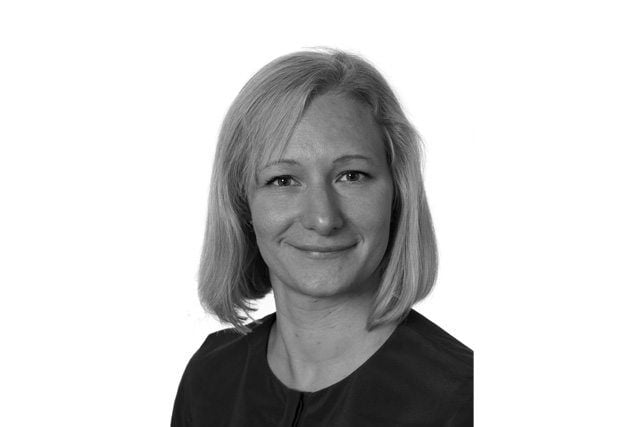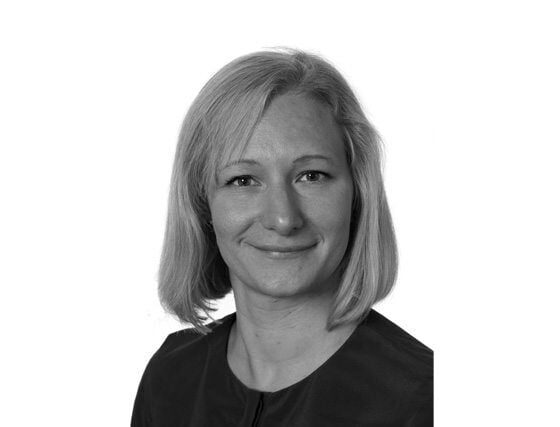

Energy
Exclusive Interview: Sophie Walker, Head of Sustainability, JLL
Sophie is UK Head of Sustainability within Jones Lang LaSalle (JLL), the global professional services company specialising in real estate. Sophie is responsible for JLL’s sustainability leadership position in the UK marketplace and with clients, as well as driving JLL’s internal environmental and social performance across our own estate and workforce. Sophie is a member of the UK Executive and the UK Building a Better Tomorrow Board.
Prior to taking on this role in 2016, Sophie was a Director in the Upstream business within JLL, overseeing our Strategy & Communication services. Over 8 years, Sophie helped companies create market-leading sustainability visions, strategies and implementation programmes, and ensured results are achieved. Sophie has designed strategies for companies and for major master-plans in Europe, the Middle East and Africa, she has assisted multiple clients with their sustainability reporting, she set up our own European training programme, and she has implemented socio-economic and environmental management systems. Sector experience includes: real estate; retail; professional services; agriculture; and healthcare.
Sophie joined JLL in 2007, having worked in the UK House of Commons. Sophie has an MSc from Cranfield University in Environmental Management for Business and an MA (Oxon) in English & Modern Languages from the University of Oxford. Sophie was Estates Gazette Young Professional of the Year 2014 and one of the ULI 40 under 40 winners 2014.
What is JLL’s sustainability mission?
JLL’s sustainability programme is Building a Better Tomorrow. At JLL we believe we need to go beyond bricks and mortar. Buildings affect our health, happiness and can make our work more productive. But they also account for more than half the total impact on the planet. Our mission is to build livelihoods, relationships, ideas, places and a sustainable future. We want to be the most sustainable real estate services firm globally, realising our significant opportunity to make buildings and cities where people thrive.
What was the driver behind this?
In the UK, we committed back in 2011 to embedding sustainability in everything we do. The primary driver was strong client and staff feedback on the opportunity for us to be market-leading across all of our services – we had a great sustainability consultancy in our Upstream Sustainability Services business, which was and continues to be a great asset to our clients. But we were not realising the benefit of up-skilling our whole workforce to be able to talk confidently about how to navigate the environmental and social implications of real estate decision-making, and we weren’t consistently walking the talk in our own buildings. That has definitely changed for the better, not least with the UK launch of Building a Better Tomorrow in 2014, which was adopted globally this year.
Who does it primarily serve?
For me, leading our UK programme, the emphasis is on helping and influencing our clients, our industry, our staff and our communities to be resilient long into the future. At a global level, as a listed company, our programme also gives our shareholders confidence that we are thinking and acting long-term, and they will generate secure value from their investment in us.
What difference does JLL want to make in sustainability?
We want to continue to leading the conversation and setting sustainability standards for the real estate industry. Every day we give advice to thousands of people about thousands of buildings, and procure many services and products on their behalf. That is a unique influencing opportunity and where we can make the biggest difference. I want us to get to a point where every transaction, every building we manage or build, and every piece of advice we give to clients, genuinely evaluates how we make buildings healthier and better connected with our communities and the natural environment. We also want to be an exemplar – in our own workplaces and with our own people – of how you fit-out and run great sustainable buildings, and of how you create a work culture that values diversity, develops skills for tomorrow’s challenges and fosters good health and well-being. We have made great strides, but there is so much more to do.
What are the barriers to making that difference?
In part the biggest challenge for me is having a large workforce. As influencers, it is critical that our staff are knowledgeable and bought-in to what we are seeking to do. All of our UK staff have undertaken our mandatory sustainability e-learning programme, which was a great start, and we run refresher sessions for our network of over 200 champions. However, you do need to keep updating this knowledge base for all staff, keeping them enthused through exciting comms and driving the sustainable behaviour change. Furthermore, we have been through a fair bit of M&A in the last few years. This brings fresh ideas and fresh business lines in to JLL, which is great, but it also means that there is an ongoing need to get new staff up to speed on sustainability quickly, even when they are taking on so many new things about a different company’s culture and structure.
Who’s helping you overcome those barriers?
I have a great team, all of whom spend a lot of time and energy engaging effectively with their networks of sustainability, community, workplace and diversity champions. I am also part of our UK Executive team which helps with communicating our activities at a senior level. Our HR and Marketing teams have been huge supporters of our employee engagement and training in different guises over the years. And we also draw on expertise from external experts like Global Action Plan, who helped us run a very sexy paper reduction campaign last year, which achieved a 20% reduction in paper use per person and delivered projected annual savings are £100,000.
Is the Real Estate world doing enough to support sustainability?
It has come a long way, but it still has so much more to do. Real estate accounts for 35% of carbon, 25% of water and 40% of raw materials use globally. Real estate development and investment hugely influences our sense of community and our quality of life, and we spent 90% of our time indoors, so buildings influence human health and happiness. So the real estate sector has one of the biggest responsibilities across all sectors to drive sustainable development. In the decade I’ve been working in the sector, I’ve seen huge changes for the better, in many different markets, as evidenced by the growth of the Global Real Estate Sustainability Benchmark, the impact of Green Building Councils around the world and the growing understanding of social sustainability. The large developers and institutional investor community really do take sustainability seriously, in their asset selection, in the way they commission buildings, in the way they manage buildings. So my honest answer is yes, but there is still more mainstreaming to be done by business and we need to ensure that governments of all political hues really listens to how critical a priority sustainability is for the long term economic success of the real estate sector. That message isn’t being communicated loudly enough yet.
How can people – individuals and organisations – find out more about JLL’s sustainability mission?
Starting with the obvious places – read our Global Sustainability Report or our smaller UK Highlights document. Or you can drop us a line at Buildingabettertomorrow@eu.jll.com
How do you prioritise sustainability in your personal life?
I have done substantial environmental and human rights volunteer roles over the years, to make sure that I don’t just have a corporate view of sustainability challenges. I also live in a part of London in need of urban renewal, with fantastic green spaces, but awful littering and flytipping. I want my community to feel safe and pleasant, but I am also incredibly tight for time, with a toddler and a busy job, so at the moment I focus my limited energies on improving the few streets around me – getting the post box re-painted, doing little litter clean-ups, reporting issues to the Council, speaking to my neighbours. Sometimes it is the small stuff that makes sustainability real for people, and that is certainly true for me.


 Environment12 months ago
Environment12 months agoAre Polymer Banknotes: an Eco-Friendly Trend or a Groundswell?

 Features11 months ago
Features11 months agoEco-Friendly Cryptocurrencies: Sustainable Investment Choices

 Features12 months ago
Features12 months agoEco-Friendly Crypto Traders Must Find the Right Exchange

 Energy11 months ago
Energy11 months agoThe Growing Role of Solar Panels in Ireland’s Energy Future





























